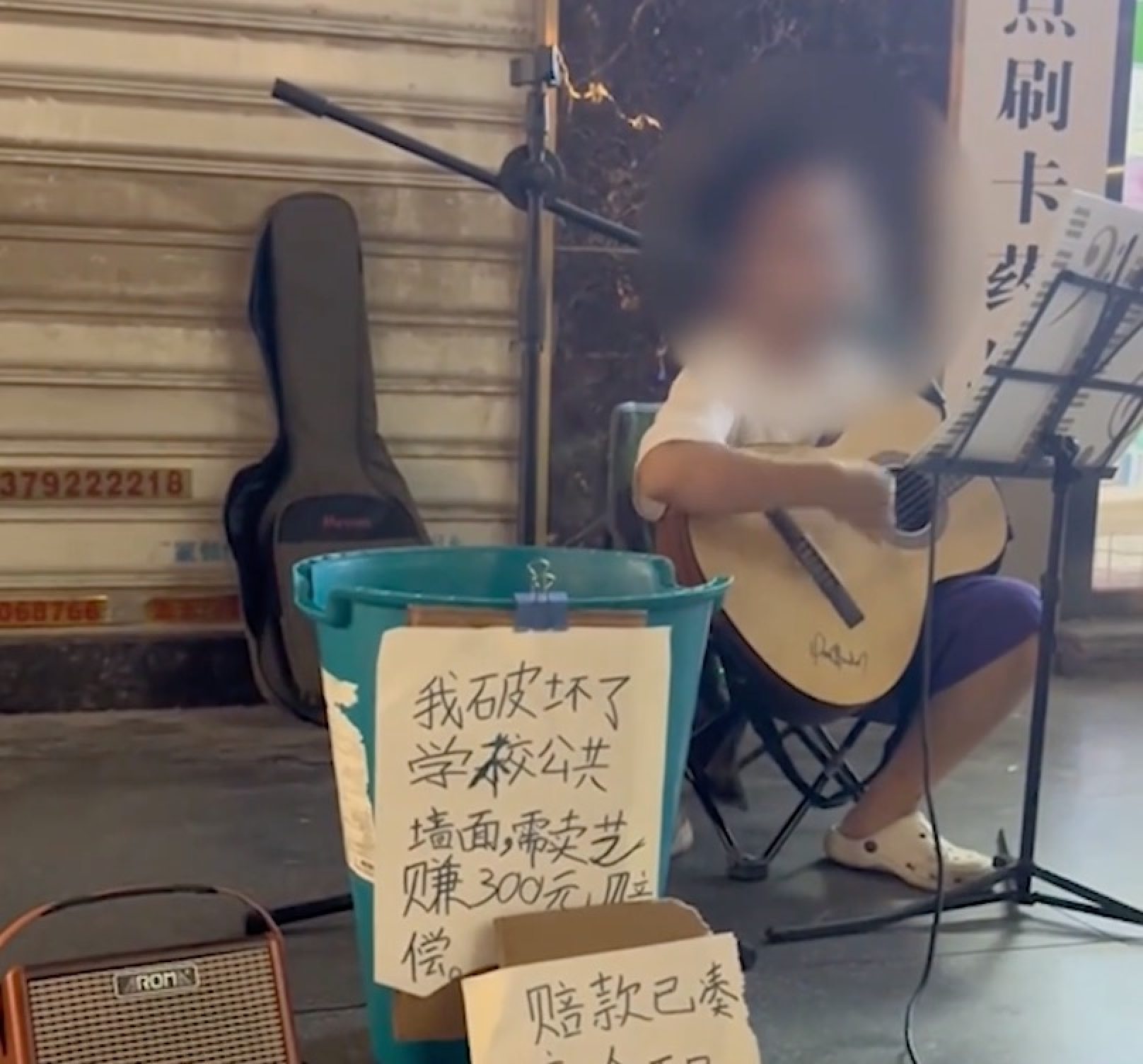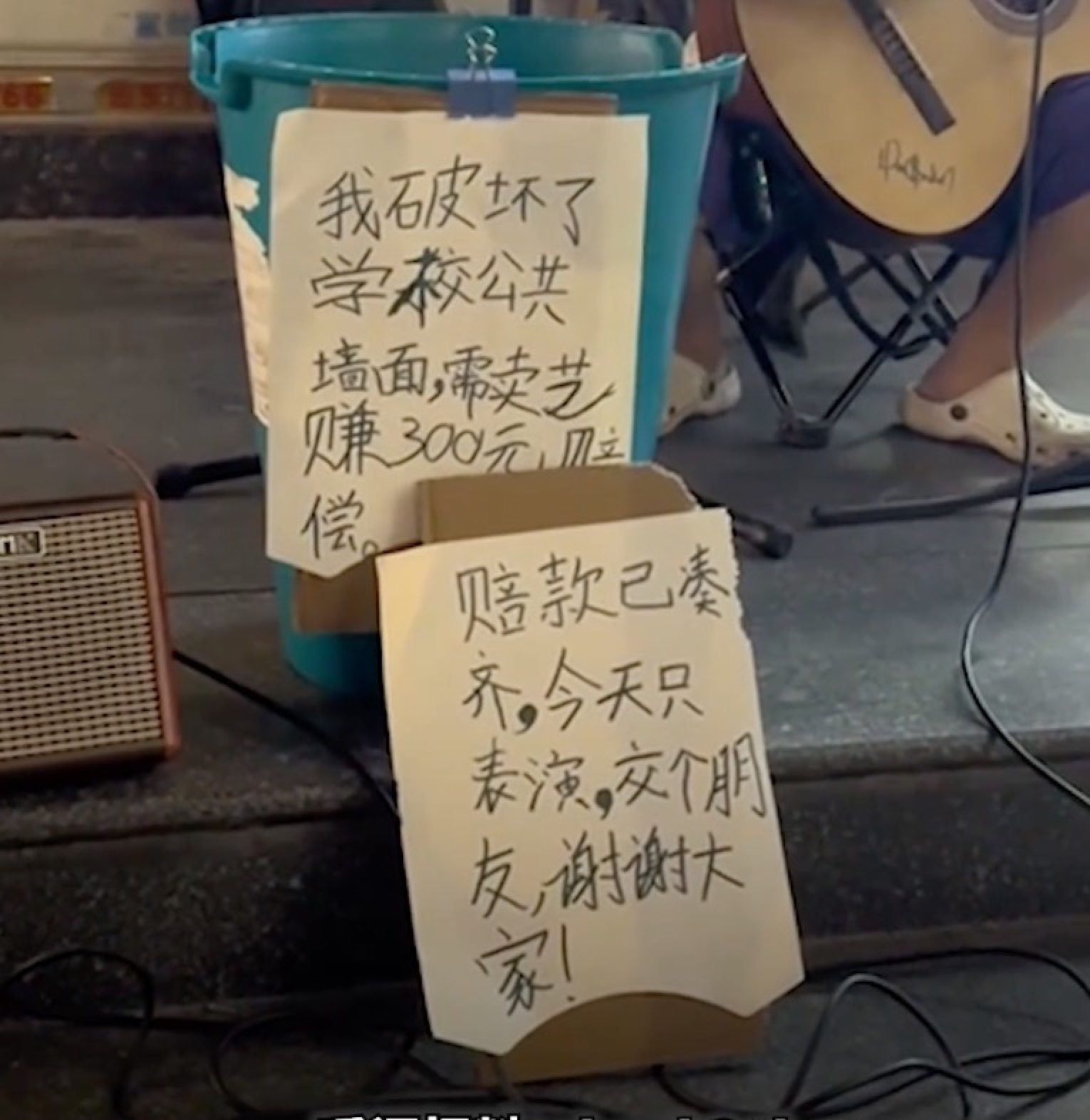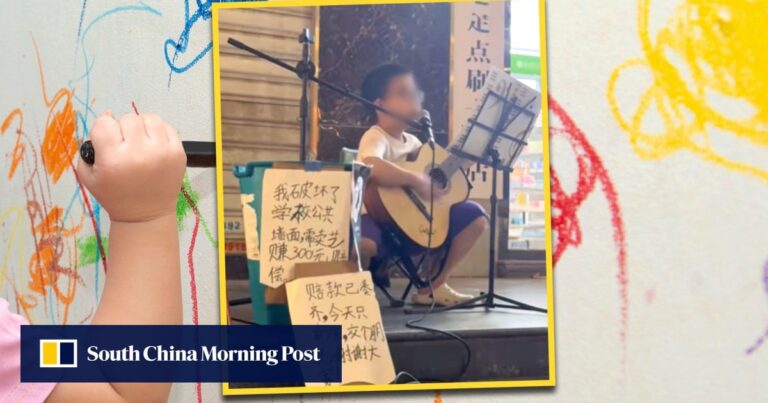The boy's father, Huang, told Bailu Video, Shaanxi province's official media outlet: “My son graffitied a wall at his primary school which was undergoing renovation. After discussing it with the school, we decided to compensate him. I hope that through his street performances, my son will learn to take responsibility.”

“He performed for one hour a day for three days and earned enough to pay the compensation,” Huang said.
This father's innovative parenting methods have received a lot of praise on social media in mainland China.
“This is a great educational method to make my son pay for his actions,” one netizen wrote on Weibo.
“Street playing can boost a boy's confidence and potentially improve his guitar skills – it's a win-win strategy,” another said.
In China, innovative parenting styles often garner attention compared to traditional strict approaches.
Last November, a PhD mother used ChatGPT to comfort her 5-year-old son.
Created by OpenAI, ChatGPT is a conversational bot that can understand complex questions and provide human-like answers.
A boy nicknamed “Twelve” fell off his skateboard on the playground, while other parents laughed.
He was so upset about being ridiculed that his parents were unable to console him.
His mother, who earned her doctorate from Peking University, instructed the chatbot to put herself in her son's shoes and criticize those who mock him.
“Firstly, they've gone too far. How can they treat a child like this? Secondly, it's really upsetting to see this happen,” the chatbot said in a female voice in Chinese.

“They need to know that what they did was completely wrong. Thirdly, laughing at a child who falls is an unsympathetic act.”
Twelve was quickly convinced by the chatbot's “objective perspective.”
Last August, a boy nicknamed “Guo Guo” from eastern China's Jiangsu Province was taken to the police station by his mother for being rude.
After listening to the police officer's story, Guo promised to never use foul language again and to learn to respect others.


